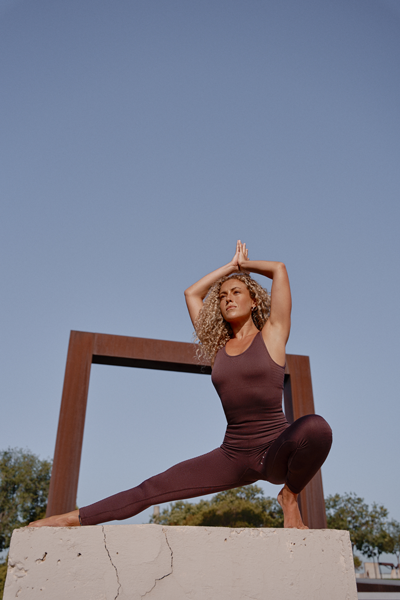We find ourselves in a world surrounded by stimuli: work, personal life, the digital environment... a continuous wear and tear on our mind. Therefore, it is easy to fall into stress and need a daily moment of relaxation.
Relaxation is commonly associated with tranquility or enjoying a hobby, but relaxation techniques go beyond that and have strong benefits for your health. Relaxation is a process that decreases the effects of stress - on both your mind and your body - helping you deal with both everyday stress and stress from other health problems. Whether your stress is under control or you have not yet learned to keep it at bay, you can benefit from learning some basic relaxation techniques.
5. Write down your problems
A good way to release tension is to write down what is happening to you. By doing this practice you will be able to see the magnitude of your problems, and also, writing them down on paper will free your mind and you will be able to put your thoughts in order. This is a good practice when you feel that there is no solution and you need some perspective.
It is important that you are able to become aware of what thoughts are stressing you out, and this can be the first step in analyzing whether it is really a factor that deserves your attention. And of course, always write constructively with yourself, this is an exercise to help you release your thoughts and help you become aware.
4. Practice deep breathing
Breathing exercises are useful for relaxation and can help relieve stress, sleep problems or feelings of being under pressure. You can practice different breathing techniques as long as you have 10 minutes and a space in which to find calm.
Although there are different breathing techniques, here are two that are easy to practice and for a beginner level:
- Abdominal breathing: This is ideal for when you are about to face a stressful event -but keep in mind that with the state of agitation, controlling your breathing will be a challenge, so be patient-. To begin with this exercise, you should place one of your hands on your chest and the other on your belly, inhale deeply through your nose, making sure that you are inflating your diaphragm, not your chest -this point is important for a widening of the lungs-.
It is recommended to take 6 to 10 slow breaths per minute, a total of 10 minutes each day. This will immediately reduce your heart and blood pressure, and after a few weeks, you will notice long-term benefits.
- Nostril breathing or Nadi Shodhana: This breathing is perfect for times when you are looking for concentration and energy. This technique is considered to cleanse the channels and makes people feel awake; it is also a highly recommended breathing for yoga practitioners, as it is said to bring calm and balance. To perform this breathing, you should first get into a comfortable meditation position, then place your right thumb on your right nostril and begin to inhale deeply with your left nostril. When you reach the peak of the inhalation, cover the left nostril and exhale through your right nostril. You should then continue to practice this pattern for a few minutes.

3. Practice yoga
Yoga is a practice that works both your body and your mind, as it combines physical postures with controlled breathing and meditation and relaxation techniques. As we saw in our post on the benefits of yoga, among them is the reduction of stress, lower blood pressure and lower heart rate, which benefits relaxation.
In addition, there are several studies that show that yoga can be a great ally when it comes to reducing stress and anxiety, improving mood and overall sense of well-being. And also, it can help in the control of symptoms of depression and anxiety.

2. Walk
A good walk can be a fantastic technique, as some studies claim that when you walk, your body relaxes and sends calm signals to your mind - which will help you relieve tension. This exercise is easy to practice, low impact and also raises the level of endorphins that reduce both cortisol and adrenaline -both precursors of stress-.
1. Meditate
Meditation is an ancient method with numerous benefits, both physiologically and mentally, and helps to gain mental clarity, eliminate tension and focus -among many other benefits-. Therefore, to relax it is important that in addition to the body, you relax your mind; and a fantastic way is to do it through meditation. There are numerous meditation techniques, but what they all have in common is that you must focus on the present moment.

You must keep in mind that relaxation techniques are skills, therefore, it takes practice to get better at them. Be patient with yourself and if you feel that one of the relaxation techniques does not work, try another one.
